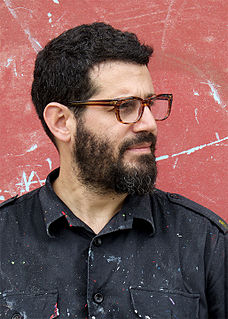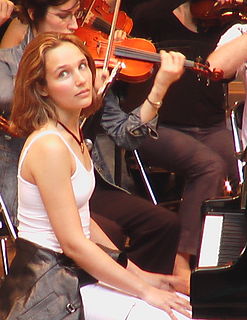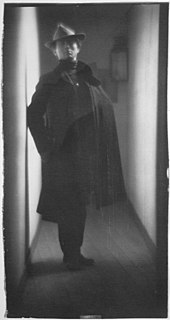A Quote by Jose Parla
For me, the canvas is an abstract interpretation of a wall. It's a piece of art with its own history, one that alludes to the passage of time and to the theater of life.
Related Quotes
Theater is about interpretation and what an actor and what a director brings to a piece too. I'm open to it every time I work with a director and a group of actors. I have to be open to that interpretation. I'm not one of those hysterical playwrights that come and say, "This is not what I intended to do." It's one rendition of the piece.
Jazz musicians like John Coltrane needed these very clear titles for their abstract music, and your decision to bring voices into your music as a way to tap into content. It's related to the way my text-based work still functions as abstraction for me. If I repeat a sentence down a canvas, the text starts to smudge and disappear. It essentially becomes an abstract piece. The meaning of the text is still there.
Your interviews or blog posts or whatever are less supplements to your novel than part of it. I'm not private, but I believe in literary form - I'll use my life as material for art (I don't know how not to do this) and I'll use art as a way of exploring that passage of life into art and vice versa, but that's not the same thing as thinking that any of the details of my life are interesting or relevant on their own.
Have you ever had a moment where you finish a piece, and then all of a sudden the piece sort of takes on it's own life beyond you? It doesn't happen every time, but there are some pieces where that happens, and I love that. I feel like that's what I'm seeking nowadays, that moment of transcendence with a piece. Where this thing becomes larger than me as a person. It becomes otherworldly, and then I get separated as maker from it, and then it has it's own life. I love that.
In most modern instances, interpretation amounts to the philistine refusal to leave the work of art alone. Real art has the capacity to make us nervous. By reducing the work of art to its content and then interpreting that, one tames the work of art. Interpretation makes art manageable, conformable.
Another thing about creation is that every day it is like it gave birth, and it's always kind of an innocent and refreshing. So it's always virginal to me, and it's always a surprise. ... Each piece seems to have a life of its own. Every little piece or every big piece that I make becomes a very living thing to me, very living. I could make a million pieces; the next piece gives me a whole new thing. It is a new center. Life is total at that particular time. And that's why it's right. That reaffirms my life.
































